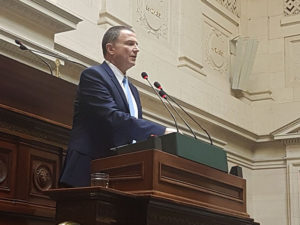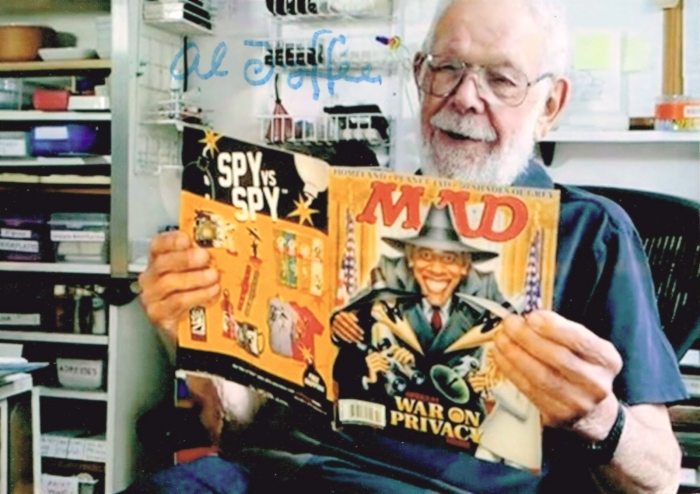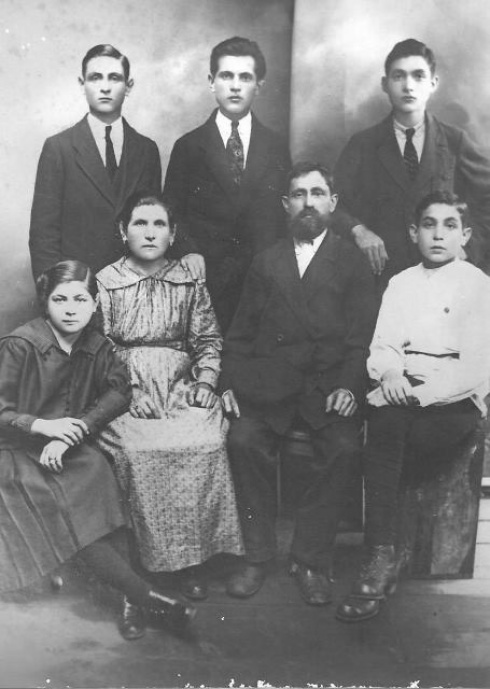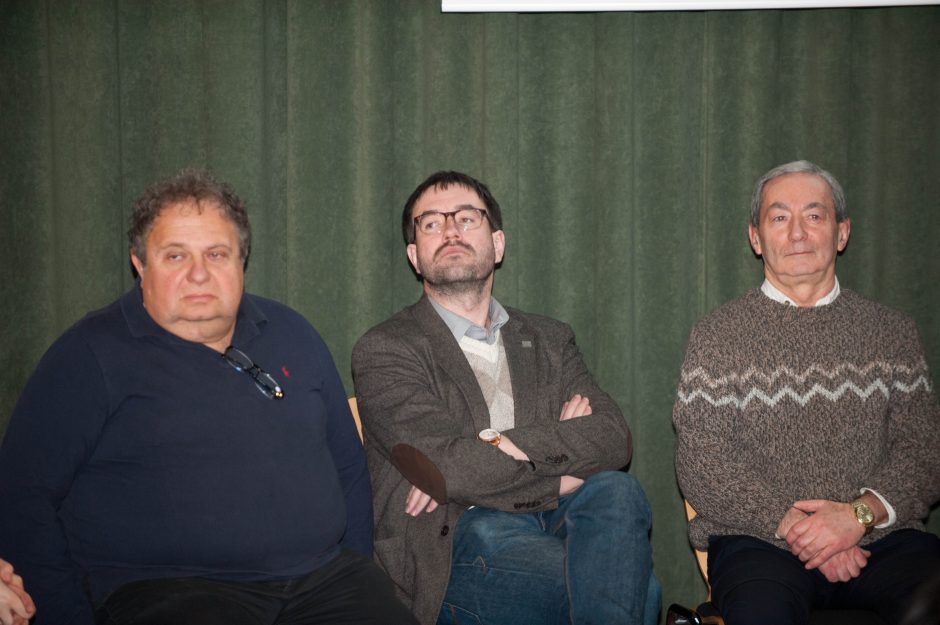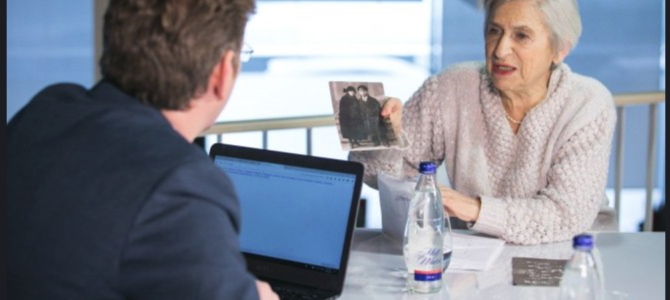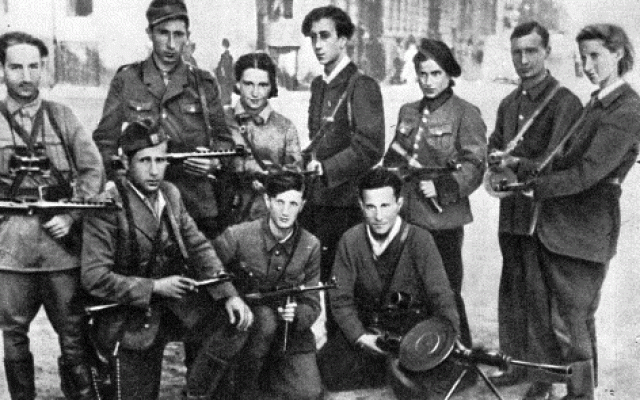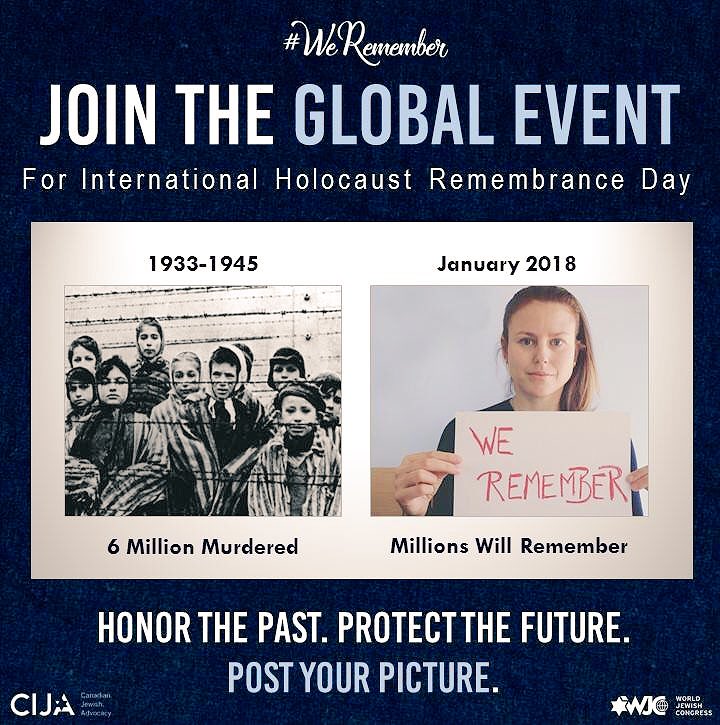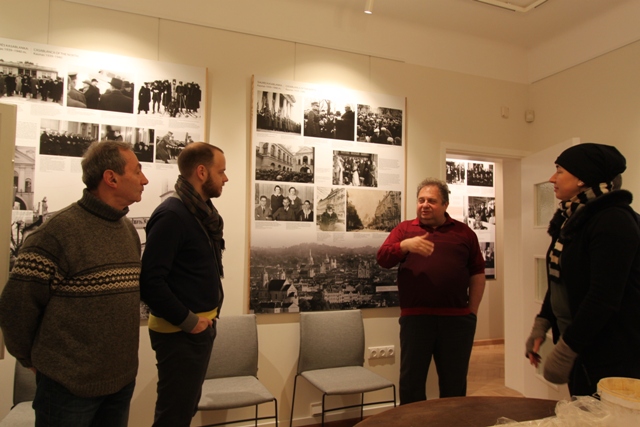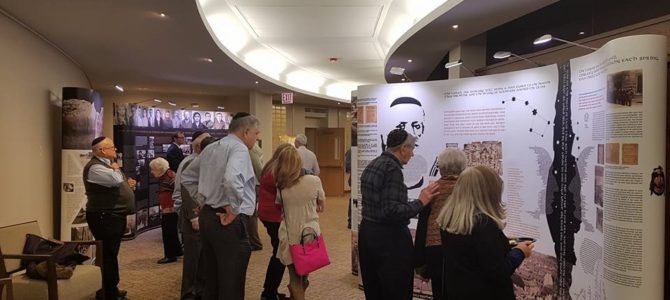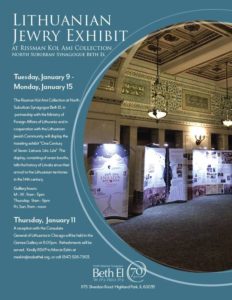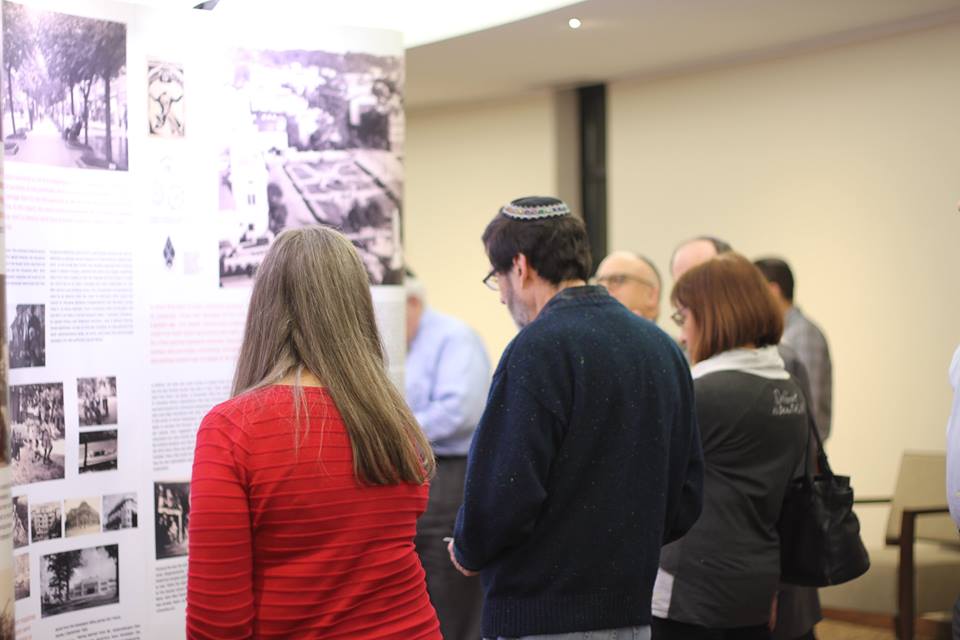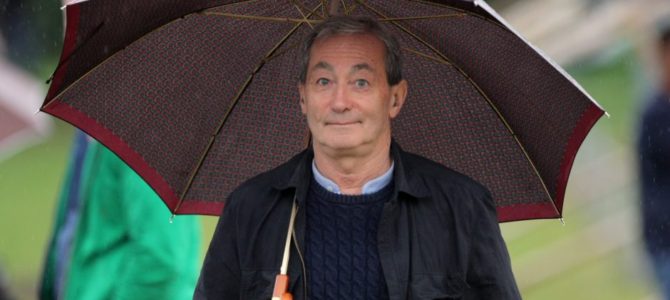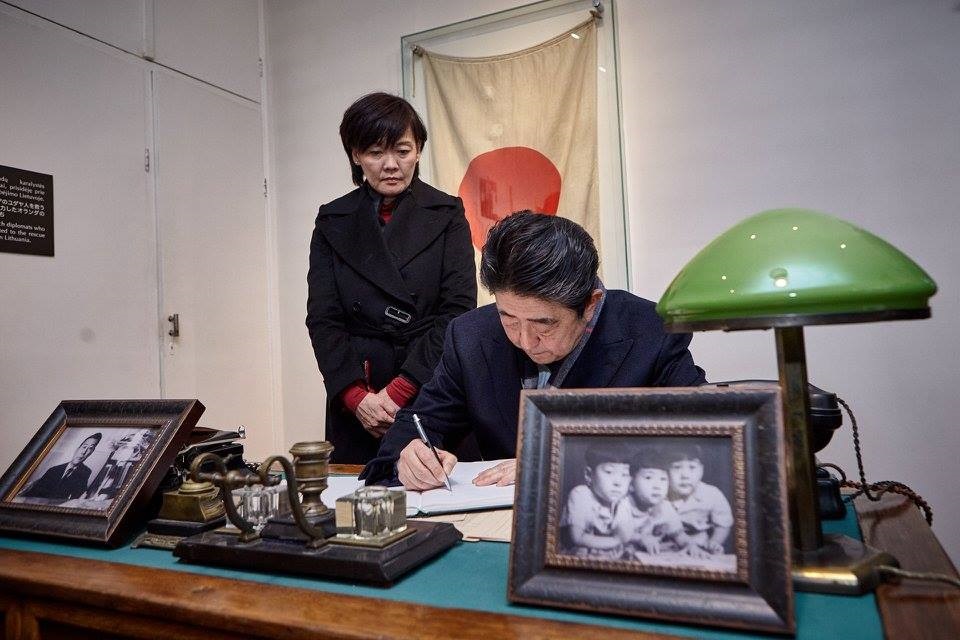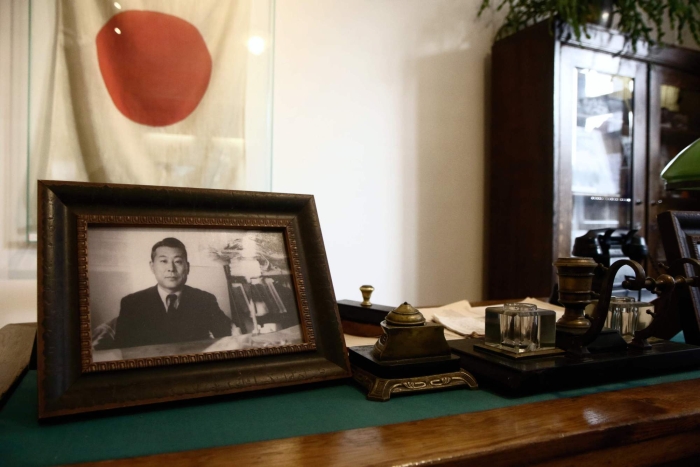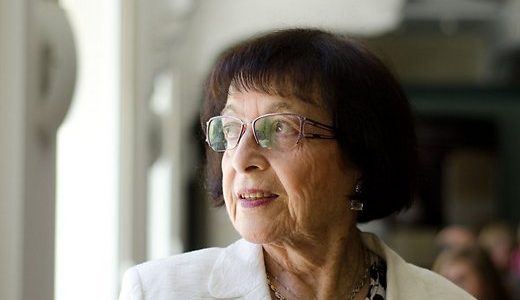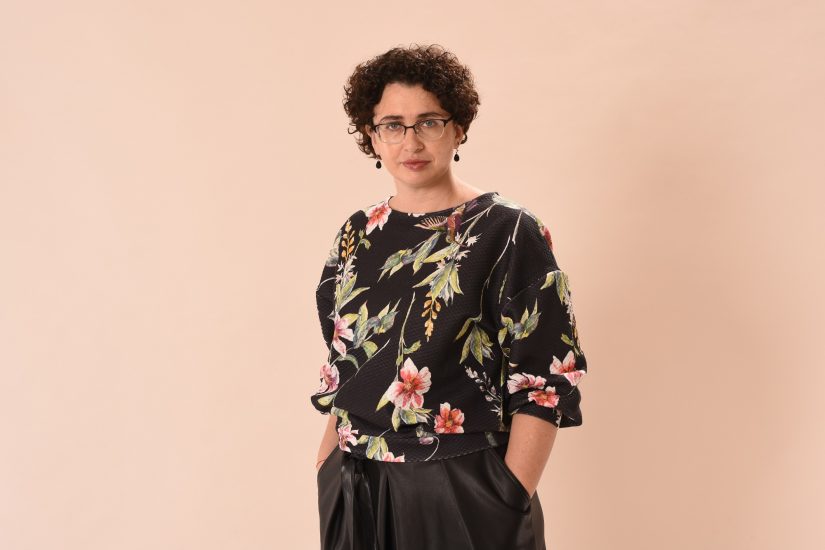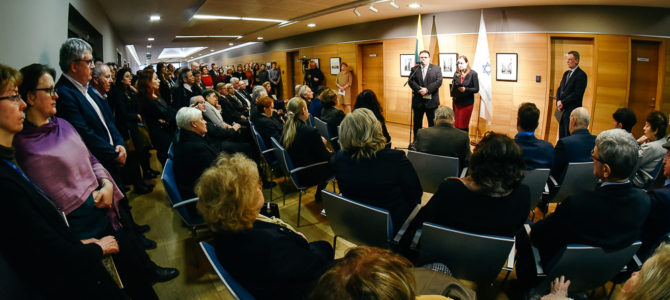
The Lithuanian Foreign Ministry in conjunction with the Lithuanian Jewish Community commemorated International Holocaust Remembrance Day at the ministry Friday, January 26.
The event was humble, tasteful and without much fanfare, but was attended over 100 people, including survivors, children of survivors, grandchildren, foreign ambassadors, staff and members of the Lithuanian Jewish Community, the foreign minister and the father of Lithuanian independence, professor Vytautas Landsbergis, along with many ministry employees.
Foreign minister Linas Linkevičius spoke briefly and fully “owned” the Holocaust for Lithuania, saying while it was sad to begin the year celebrating the 100th birthday of the modern state with the Holocaust, it was necessary so that people would never forget. He called the Holocaust a scar across the face of the nation and the darkest page in Lithuania’s and humanity’s history, but also pointed out Lithuania now boasts 891 Righteous Gentiles.
LJC chairwoman Faina Kukliansky spoke and said the fact the Foreign Ministry was hosting the event meant the Lithuanian state was recognizing the importance of remembering what happened. She also announced the upcoming release of Yitzhak Rudashevski’s ghetto diary in Lithuanian.
A representative from the Israeli embassy praised Lithuania for adopting the IHRA definition of anti-Semitism.
Rafailas Karpis performed songs in Hebrew and Yiddish.


